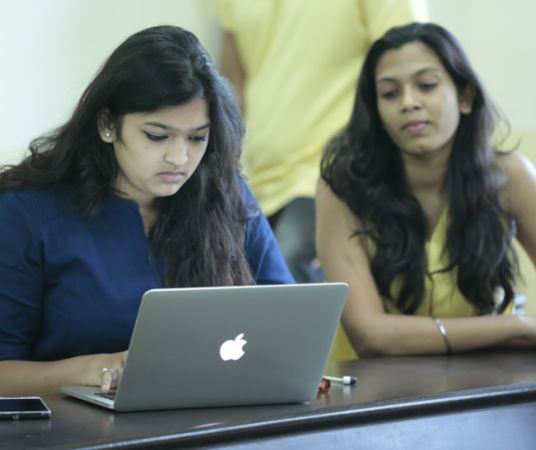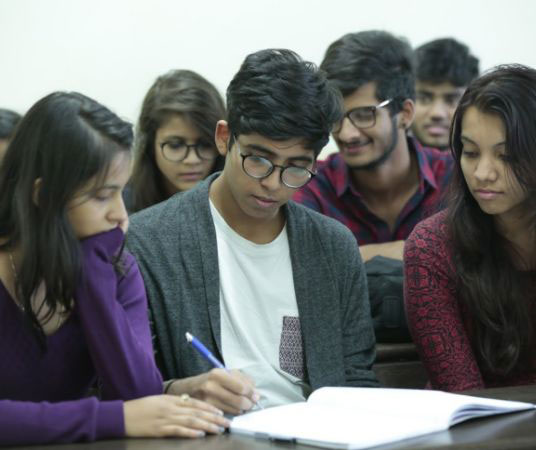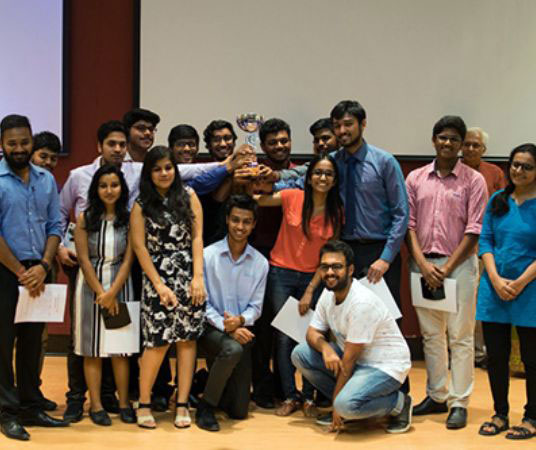Pedagogical Initiatives
Innovative teaching techniques for better learning outcomes
NIIT University (NU) deploys dynamic teaching-learning practices to arm students with knowledge that allows them to stay in sync with a changing professional and technological landscape. As technology constantly and rapidly evolves, a static and fixed curriculum can make it challenging for a student to transfer academic learning to practical application. NU’s innovative pedagogic techniques give academic curriculum the relevance and rigour that prepares students for their professional journeys.
Read More
- Focuses on the application of brain-aligned pedagogic mechanisms
- Facilitates teaching design and learning outcomes through a research and discovery mode of instruction
- Encourages students to apply general domain principles (always in operation) to specific principles (in operation during certain contextual and individual situations)
- Uses Educational Technology as an information delivery system for the entirety of involved processes
- Customer, customer requirements and benefit
- Integrating realistic business problems with realistic classroom/laboratory engagements through a Value Stream Model-based experiential learning that, in turn, creates value
Masters in Residence
The Masters’ knowledge of diverse subjects, their distinct subjective experiences, and the mentorship and guidance they offer, give our students the opportunity to grow intellectually and holistically.
Masters in Residence is an innovation that endeavours to help young minds, trained to absorb the perspectives of time and spatial dimensions, to relate their learning to contemporary challenges.
Our Masters’ Voices

Acclaimed filmmaker and environmentalist
Converting the barren hills of Aravali in Jodhpur into a green and hospitable ecosystem (September 2021)
Author
(The Educational Heritage of India: How an Ecosystem of Learning was Laid to Waste)) Learning in ancient India (November 2021)
Additive Curriculum
In a traditional curriculum model, content is identified beforehand, fixed for a period, subsequently broken into courses and finally segregated into semesters for each year of the study programme. This model of education does not address the changing work environment.
NU’s Additive curriculum model considers value-adding experiential learning through a real-time industry project an integral part of the course. Faculty mentors plan student engagements by pedagogically linking the classroom with industry for part of a course through project work. Hence the term Additive Curriculum in contrast to the subtractive curriculum of the traditional model.
The projects are drawn from industry with industry mentors working closely with university faculty. The projects cut across different courses and different years of a programme. Students from the first to the third years of engineering work in teams to deliver project outcomes as defined by the industry mentor.
The role that I performed during the LPL gave me an insight into my potential future paths and helped me discover my innate strengths.” — Venkatachalam Reddy
Team 14, winners, LPL, 2017
Learning Premier League

Benefits of LPL
- Gaining first-hand experience of writing and publishing research papers.
Students draft mini research papers that go into an e-journal. - Learning to identify industry needs, managing teams and work pressure
- Learning to apply theoretical knowledge to solve industry problems by identifying requisite technologies and processes, becoming expert learners in the process
- Getting an insight into future career paths they might want to explore based on their innate strengths
Industry Practice






 The role that I performed during the LPL gave me an insight into my potential future paths and helped me discover my innate strengths.”
The role that I performed during the LPL gave me an insight into my potential future paths and helped me discover my innate strengths.”
